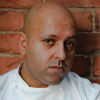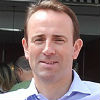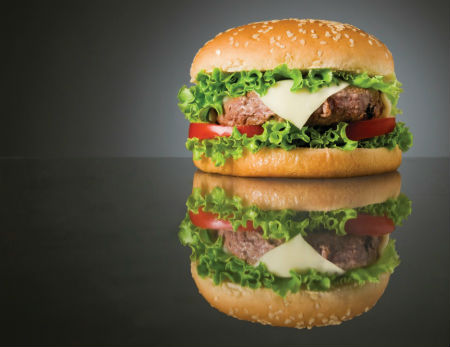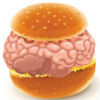The Big Question: why are burgers fashionable again and why now?
Britain has gone burger-mad over the past week, with a spate of launches of trendy new burger joints including US imports Five Guys and Shake Shack. Neil Gerrard asks why the ‘better burger' phenomenon has become so popular - and so fashionable
Tom Byng, founder, Byron
Burgers have become fashionable again because they straddle a number of current food trends, including the rise of street food, the desire for affordable treats and the fascination for authentic US comfort food.
The role of social media, specifically Twitter, has also been pivotal. Young, media-savvy twentysomethings can now share and promote interesting developments in the food world instantaneously without the need for mainstream media approval.
Joe Grossman, owner, Patty and Bun
Burgers have obviously been very much in the limelight recently, but I think that's down to people just focusing on doing a few things as best as they can, using great ingredients and making sure that it's consistent all the time.
Sat Bains, chef-patron, Restaurant Sat Bains with Rooms, Nottingham
Ultimately, with anything trend-based, there are going to be quality-control issues. There isn't going to be enough quality beef if everyone jumps on the bandwagon. It's going to take its toll. I can see people paying a premium price for burgers along the same lines as paying for a steak, but that's going to be the issue when demand outweighs supply.
I love places like MEATLiquor when I'm in London. I just don't see going out for a burger as quite the same as going out for dinner.
Ed Standring, managing director, Richoux Group (operator of Dean's Diner)
Families now eat out together far more regularly than in the past. A burger and fries will satisfy the fussiest child (or adult), and premium chains encourage us to see their locally sourced/grass-fed fresh burgers as a healthy option far removed from the greasy burger vans/cafés of our own childhoods.
Shaun Hill, chef proprietor, the Walnut Tree, Abergavenny
Second, burger joints/restaurants are user-friendly. The late Bob Payton, who started the Chicago Pizza restaurants before opening posher addresses with clever chefs, such as Stapleford Hall in Leicestershire, always claimed that everyone really preferred a burger to all that poncy stuff that restaurants sell - certainly true in his own case.
Third, the main burger chains provide a cheap but fairly abysmal product, so it is not difficult to do better. I'm surprised that, with the honourable exception of Bubbledogs, hot dogs and upmarket fishcakes haven't done the same yet. The main target market so far has been people younger than myself who want to eat someplace modern and exciting, like MEATLiquor. I find anywhere with loud music and dimmed lights irritating, of course, as I am old and want to read my paper over lunch.
Peter Backman, managing director, Horizons
In the past few years, we have seen the expansion in the UK of more upmarket burger brands with the likes of Gourmet Burger Kitchen and Byron, and I believe what we are seeing now is the inevitable growth of midmarket brands.
This makes sense as consumers are spending cautiously but still want a quality product made with good ingredients - whether it be a takeout or eat-in.
Burgers have always been in the top five most popular dishes in Horizons' Menurama research, which analyses high-street menus, and we have charted this growth in popularity. The number of outlets listing burgers on their menus increased 17% from winter 2010 to winter 2012 and the number of meals eaten in burger restaurants is growing at about 20% a year. Sales through burger outlets in 2012 were worth £3.6bn, up 3.1% on 2010.
Adam Hyman, CODE restaurant consultancy
However, London has been enjoying a restaurant renaissance over the past couple of years, with a trend towards price-conscious, informal eating.
Burgers epitomise this. They can be eaten with your hands and cost under a tenner and feel as though they should be eaten beside a food truck or perched on a stool with a cold beer.
But I'm not sure the phrase 'upmarket burgers' is the best way to describe the current trend. It is more that we can now easily find a decent burger in central London that isn't, say, a McDonald's.
We should welcome the arrival of Five Guys and Shake Shack as they have dramatically improved our fast food offering overnight and the more competition and offering we have in London, the better.
Burgers may be fashionable to eat now, but they are here to stay.
Ashley Palmer-Watts, Executive chef, the Fat Duck Group and Dinner by Heston Blumenthal
Burgers are tasty and very satisfying; they're quick, and everyone lives in a quick world these days. There's something very social about eating a burger, and although there's something rough and ready about them, in the right atmosphere there's nothing better.
My concern with the increase in demand for burgers is that we don't have enough British beef in this country to supply this trend. In the last few months, and certainly since the horsemeat scandal, the price of beef has gone up 13%, so I think you're going to see an impact on the quality of beef served soon from burger to burger.
FOOD FOR THOUGHT
Dr Siri Harrison, clinical psychologist, City Psychology Group
In the past several years it's become very popular to be a "foodie," especially regarding dated foods that have been reinvented. If you scan your Facebook page you will inevitably come across a handful of pictures and posts about the amazing food experiences your friends and family are having. If you flip through the TV channels you will now find a handful of shows featuring "celebrity chefs" as well as aspiring chefs trying break through and achieve fame and success.
The popularity of gourmet burger joints is about identity more so than the food itself. Those who choose to wait in lines that stretch around the block for a new burger likely want to be seen as "movers and shakers" of popular culture or as a discoverer of new territory. This isn't any different than buying the new iPhone on the very day of its release or bragging to friends about how you saw that band before they sold out Wembley Stadium. The message being - you were there first, before anyone else.
People like to portray and understand themselves as leaders in popular culture because it gives them a sense of importance. It's a way of trying to boost our self-esteem by being in "the know" with interesting stories to tell others. Wanting to be seen as cutting edge is quite normal and natural but more recently, especially in the face of social networking, there are some psychological and emotional drawbacks. People are increasingly investing more time and energy in portraying their lives as being entirely interesting and amazing, without the slightest hint of difficulty. If we are always communicating that we eat the best food and go to the best restaurants and bars, we're likely not really connecting with others about the reality of our lives.
It's actually really important for people to share their real experiences with their family and friends, including the negative or more difficult aspects because it allows for genuine connection and understanding between people. The more we portray ourselves interesting and amazing, always eating the best food and doing the next best thing, the more alienated we become.
THE BURGER BOYS: WHO, WHERE AND HOW MUCH
BGR.CO
Sites: One in London, three worldwide
Owner: Par Contre Group
Year opened: First UK site opened 2012
Typical price: £6.95 for a 6oz Tender Blend burger, £0.95 extra for cheese
CLEAVER
Sites: One (Cobham, Surrey)
Owner: Prezzo Group
Year founded: 2013
Typical price: £7.75 for a Cleaver cheeseburger
BURGER KING
Sites: About 500 nationwide
Founders: James McLamore and David Edgerton
Year founded: US 1954, first UK opening in 1977
Typical price: £3.79 for a double cheeseburger
SOHO LONDON DINER
Sites: One
Owner: Soho House Group
Founders: Nick Jones and Brendan Sodikoff
Year opened: 2013
Typical price: £10 for a double cheeseburger
GBK
Sites: 59
Owner: Capricorn Ventures
Founders: Greg Driscoll, Brendan Allen, Adam Wills
Year founded: 2001
Typical price: £7.95 for a blue cheeseburger
SHAKE SHACK
Sites: One in Covent Garden, London, 30 worldwide
Founder: Danny Meyer, Union Hospitality Group
Year opened: USA in 2004, first UK opening in 2013
Typical price: £7.50 for a Double Shack burger
MEATAILER
Sites: Three in London (MEATliquor in Brighton due to open soon), plus MEATwagon
Founders: Scott Collins and Tianni Papoutis
Year founded: 2009 (MEATwagon)
Typical price: £7.50 for a Double Bubble in MEATmarket, Covent Garden
PATTY & BUN
Sites: One (Mayfair, London)
Founders: Joe Grossman and Mark Jankel
Year founded: 2012
Typical price: £7.50 for the Ari Gold
FIVE GUYS
Sites: One in Covent Garden, London; around 1,000 in US
Founders: Jerry and Janie Murrell
Year founded: USA in 1986, first UK opening in 2013
Typical price: £8 for a double cheeseburger
MCDONALD'S
Sites: About 1,200 nationwide
Founders: Richard and Maurice McDonald
Year founded: USA in 1940, first UK opening in 1974
Typical price: £2.69 for a Quarterpounder with Cheese
ED'S EASY DINER
Sites: 18 nationwide (four more to open soon)
Founder: Barry Margolis
Owner: Ed's Easy Diner Holdings
Year founded: 1987
Typical price: £6.45 for a Cheese or Cheese burger
DEAN'S DINER
Sites: Four nationwide
Owner: Richoux Group
Typical price: £6.35 for a cheeseburger
BYRON
Sites: 34 nationwide
Owner: Gondola Group
Founder: Tom Byng
Year founded: 2007
Typical price: £6.35 for a cheeseburger
BURGER MEATS BUN
Sites: one in Glasgow
Founders: Ben Dantzic and James Forrest
Year founded: 2013
Typical price: £7.50 for a Big Cheese




















